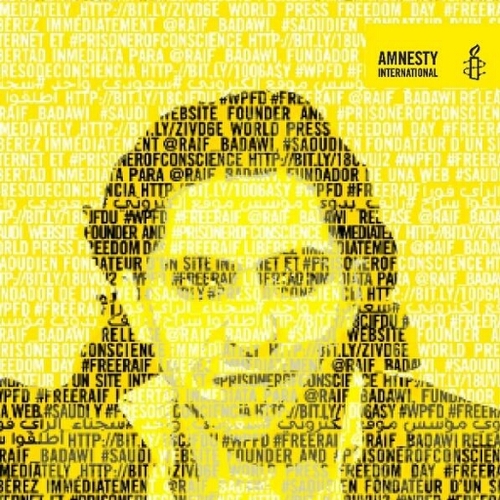BY JOHN M. CRISP
We haven’t said enough about Raif Badawi.
He’s the Saudi Arabian blogger who was convicted of insulting Islam and sentenced to 10 years in prison, a $266,000 fine and 1,000 lashes to be administered 50 at a time over 20 weeks.
It’s never easy to modulate our outrage. When 12 people were murdered at Charlie Hebdo for insulting Islam, millions marched in Paris, including national leaders from all over the world.
But when the Islamist militant group Boko Haram attacked the Nigerian villages of Baga and Monguno in January, killing as many as 4,000, according to Amnesty International, we hardly noticed.
So how should we respond to the plight of one lonely guy sitting in a prison somewhere in Saudi Arabia waiting to be dragged out for his next beating?
Raif Badawi, 31 and the father of three, isn’t a terrorist or rebel who is actively fomenting uprisings against the House of Saud. His crime is free expression. According to Human Rights Watch, Badawi posted material on his website that was “critical of senior religious figures.”
He was also accused of apostasy—the abandonment of Islam— a crime that in Saudi Arabia carries an automatic death sentence. For speaking his mind, Badawi received the “lesser” penalty of a fine, imprisonment and 20 weeks of beatings.
The brutality of 1,000 lashes should not be underestimated. The Internet is rife with videos of people being beaten, all over the world, in the name of religion or justice. But there’s nothing judicious about these beatings; they are savage and brutal and the victim suffers terribly.
In fact, sometimes these kinds of beatings push their sufferers, as intended, to the brink of physical and psychological endurance. Badawi received his first 50 lashes on Jan. 9. His physical condition was so compromised that the next two beatings were postponed.
The postponements imply concern by Saudi officials for Badawi’s well-being, but it’s more likely that even they understand the bad publicity that would ensue if they accidentally beat Badawi to death, which is a real possibility.
Some commentators have suggested that the Saudis were caught off guard by the outcry from human rights groups and from some Western governments. For example, a spokesman for Canada’s prime minister, Stephen Harper, called Badawi’s punishment a “gross violation of human dignity.”
But the United States, which should be an outspoken proponent of free expression and of the abolition of torture and cruel punishments, hasn’t said enough.
In fact, President Obama, who didn’t make it to Paris to honor the Charlie Hebdo victims, cut his trip to India short in order to bear our nation’s condolences to Saudi Arabia after the death of King Abdullah. He was accompanied by a large entourage of American dignitaries.
It’s difficult to resolve the irony and to suppress a cringe at the sight of Secretary of State John Kerry kissing the new Saudi king on each cheek.
True, Michelle Obama didn’t wear a head scarf to Saudi Arabia. But if that gesture signaled support for Saudi women, who live under extraordinary repression, it was too subtle and not nearly enough.
President Obama’s call for Badawi’s release should be clear and emphatic. Unfortunately, Saudi Arabia’s oil reserves cloud our moral thinking.
The regime in Saudi Arabia is petrified by people like Badawi, and beheadings and beatings are among the tools it uses to stay in power.
There’s only one suitable word for these methods: Terror.
http://www.fredericksburg.com/opinion/commentary/let-s-not-forget-badawi/article_a229c717-3ab4-5657-9dce-86991b8caa8b.html

No comments:
Post a Comment